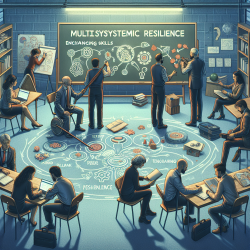Unlocking Potential: The Power of Online Therapy in Special Education
In the rapidly evolving landscape of education, the integration of technology into therapeutic practices has become a beacon of hope for special education advocacy groups. As we strive to create inclusive and supportive environments for children with diverse needs, the role of online therapy services, like those provided by TinyEYE, is proving to be transformative.
Why Online Therapy?
Online therapy, or teletherapy, offers a plethora of benefits that traditional in-person sessions might not be able to match. Here are some compelling reasons why online therapy is gaining traction in the realm of special education:
- Accessibility: Online therapy breaks geographical barriers, providing access to high-quality services regardless of location. This is particularly crucial for schools in remote or underserved areas.
- Flexibility: Sessions can be scheduled to fit into the busy lives of students and their families, ensuring that therapy is a consistent and stress-free part of their routine.
- Engagement: Digital platforms often incorporate interactive tools and resources that can enhance engagement and motivation among young learners.
- Data-Driven Decisions: Online platforms facilitate the collection and analysis of data, allowing therapists to tailor interventions based on real-time progress and outcomes.
The Community Impact
The impact of online therapy extends beyond individual students; it reverberates through the entire community. Special education advocacy groups play a pivotal role in spreading awareness and supporting the integration of these services. By embracing online therapy, communities can:
- Foster Inclusivity: Ensure that all children, regardless of their challenges, have the opportunity to succeed in an inclusive educational environment.
- Empower Families: Provide parents and caregivers with the resources and support they need to advocate effectively for their children.
- Enhance Collaboration: Encourage collaboration between therapists, educators, and families, creating a holistic support network for students.
Case Studies: Success Stories
Data-driven approaches in online therapy have yielded impressive results. For instance, a study conducted by TinyEYE demonstrated significant improvements in communication skills among students who participated in regular online therapy sessions. This data underscores the efficacy of online therapy and its potential to bring about meaningful change.
Conclusion
As special education advocacy groups continue to champion the rights and needs of children with disabilities, the adoption of online therapy services emerges as a crucial step forward. By leveraging technology, we can create a more inclusive, accessible, and effective educational landscape for all children.
For more information on how TinyEYE is revolutionizing online therapy for schools, visit our website and become part of a community dedicated to creating positive outcomes for children.










